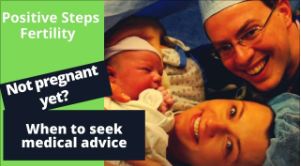Medications like Ozempic and Zepbound are well-known for helping with weight loss. However, many women trying to conceive wonder, “How do these drugs affect fertility and pregnancy?” Understanding their effects is crucial for making informed decisions about reproductive health.
Let’s explore what we know about these medications, their potential effects on conception, and what women should consider if they are trying to get pregnant.
Understanding Ozempic and Zepbound
Ozempic (semaglutide) and Zepbound (tirzepatide) are medications called incretin mimetics. They were first made to treat type 2 diabetes. Now, they are often used for weight loss. These medications work by mimicking gut hormones that regulate blood sugar, digestion, and appetite—ultimately helping with weight management.
While Ozempic and Zepbound share similarities, they target different biological pathways:
- Ozempic (semaglutide): A GLP-1 receptor agonist that mimics glucagon-like peptide-1 (GLP-1). It helps lower blood sugar, slow digestion, and reduce appetite.
- Zepbound (tirzepatide): A dual GIP/GLP-1 receptor agonist that mimics both GLP-1 and glucose-dependent insulinotropic polypeptide (GIP). This dual action is thought to enhance weight loss and metabolic effects even further than GLP-1 alone.
Since both medications affect metabolism, insulin, and appetite, they can also influence hormones related to ovulation and fertility. Understanding how they work is crucial when considering their potential risks and benefits for pregnancy.
Understanding Weight Gain and Its Impact on the Reproductive Process
Before diving into how medications like Ozempic and Zepbound affect fertility, it’s crucial to understand the relationship between weight and reproductive health. Weight gain has changed a lot over the years. As a society, we have seen a big rise in obesity.
In the late 1970s, only about 10-15% of people were considered overweight by medical standards. Obesity is a term that can feel subjective. It was much less common, with only about 10-15% of individuals having a BMI over 30. The term severe obesity, used for a BMI over 40, wasn’t nearly as relevant then as it is today. Fast forward to 2025, and about 40-45% of women now have a BMI over 30. Some regions of the U.S. are seeing even higher numbers. In the next 5-10 years, projections indicate that more than 50% of women of reproductive age (18-44) will have a BMI over 30.
This trend raises critical questions about the impact of weight on fertility. New medications like Ozempic and Zepbound may change these numbers. However, we already have strong data on how extra weight affects conception and pregnancy outcomes.
Weight, Fertility, and Misconceptions
One of the biggest misconceptions is that weight loss is simply a matter of willpower—just eat better and exercise more. The reality is far more complex. Genetics, environment, metabolism, and hormonal imbalances all play roles in weight gain. It’s not just lifestyle choices, and it’s certainly not about judgment.
As someone who has lost 30 pounds over the past two years and 50 pounds from my peak, I understand firsthand how difficult this journey can be. The idea that people should be able to lose weight without medical intervention is outdated. Many individuals need support, guidance, and sometimes medication to reach a healthy range. This isn’t about shame or blame—it’s about recognizing the real challenges and solutions available.
Women struggling with fertility are sometimes told that their weight is the sole reason they haven’t conceived. Not only is this more than likely untrue, but it can also have harmful effects on women who are already struggling. The reality is that fertility is a complex puzzle in which one’s weight is only part. It is an important part, as we will see, but reducing fertility to weight alone is dangerously simplistic.
How Weight Affects Fertility
Weight primarily affects fertility through its impact on ovulation, hormone regulation, and pregnancy viability. Let’s break it down by BMI category:
- BMI below 19: A lower-than-average BMI can harm fertility. The American Society for Reproductive Medicine (ASRM) acknowledges that being underweight can negatively impact a woman’s fertility in the form of irregular periods, abnormal ovulation, and other issues.
- BMI 19-25 (Normal weight range): This is the reference range where fertility rates are at their highest. It’s important to know that if menstrual cycles are regular, small changes in this range don’t greatly affect fertility.
- BMI 25-30 (Overweight range): Contrary to popular belief, this range does not drastically affect fertility rates. For women with regular menstrual cycles, a BMI between 25 and 30 has a small effect on fertility. There are slight differences in pregnancy success rates. Clinical pregnancy rates and live birth rates remain statistically comparable to those in the normal BMI range.
- BMI over 30 (Obese range): This is where fertility rates begin to decline. According to the Mayo Clinic, women with a BMI over 30 have an increased risk of the following:
- Miscarriage (which can increase by up to 50% in BMIs over 35)
- Gestational diabetes
- Preeclampsia
- Heart conditions
- Sleep apnea
- C-section surgery upon delivery
There is no exact number that guarantees infertility or pregnancy problems. However, the data shows that a higher BMI means greater risks. Moreover, research suggests that higher maternal BMI may also impact fetal development. So, weight not only affects fertility but can also have reverberating effects on pregnancy and the child.
Does Losing Weight Help?
The big question many women have is whether weight loss will improve their fertility. The answer? Yes, but with some caveats.
- Losing 5-10% of body weight can significantly improve ovulation and cycle regularity, particularly for women with PCOS.
- A BMI over 50 is associated with severe pregnancy risks, but even a modest weight reduction can improve outcomes.
- If you are thinking about IVF, studies show that losing weight may improve your chances of a successful implantation and live birth. However, this information is evolving.
It’s important to remember that even small weight loss—5-10% of total body weight—can greatly improve fertility. This is especially true for women with a BMI over 30. It can help with ovulation and pregnancy health. For those with a higher BMI (35+), weight loss may also reduce miscarriage risk and pregnancy complications. However, for women with a BMI under 30 who have regular cycles, the fertility benefits may be smaller.
How Ozempic and Zepbound Specifically Affect Fertility and Pregnancy
Ozempic and its counterparts are still fairly new, so clinical studies on their effect on pregnancy are limited in their availability and scope. While it is clear that losing weight could be beneficial for fertility—and that is what these drugs were intended to do—it is essential to consult with a doctor if you are on Ozempic and wish to conceive.
Current recommendations suggest discontinuing Ozempic or Zepbound 1.5-2 months before trying to conceive, but more research is needed to fully understand the impact on pregnancy. Only tailored medical support can give you the answers on when and what medication is right for you. In general, women should not use Ozempic if they are trying to get pregnant or are already pregnant.
Next Steps You Can Take
Weight plays a crucial role in fertility, but it’s not the only factor. If you’re struggling to conceive and your BMI is higher than average, don’t lose hope. Whether through lifestyle changes, medication, or fertility treatment, there are ways to improve your fertility and increase your chances of having a healthy pregnancy.
At Positive Steps Fertility, we’re here to provide clarity and support as you navigate this journey. If you’re feeling frustrated or unsure about your next steps, let us help.
My goal is to provide women with clear, evidence-based answers so they can make informed decisions. Together, we can identify what’s truly impacting your ability to conceive and develop a plan to address it. You don’t have to go through this alone. Reach out today and take the next positive step forward.
Do you still have questions?
- Learn more about Causes of Infertility in Women
- Watch my YouTube Video on How GPL-1 Medications Impact Pregnancy
- Sign up for our 20-minute fertility diagnostic test, the Parryscope Test, invented by Dr. Parry.
If you’re ready for answers now, schedule a consultation with our team. Don’t suffer in silence. Find answers. Find peace. Reach out today.




